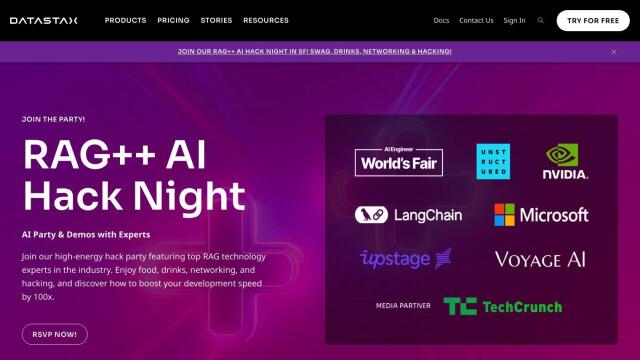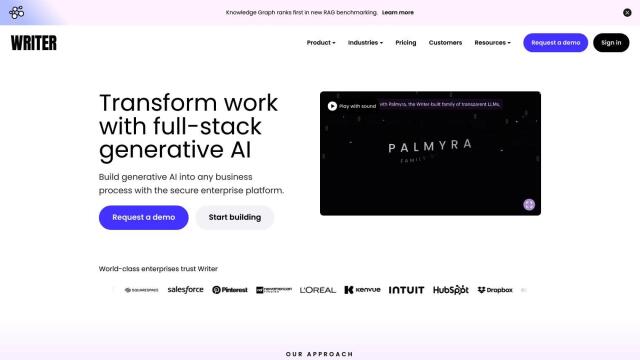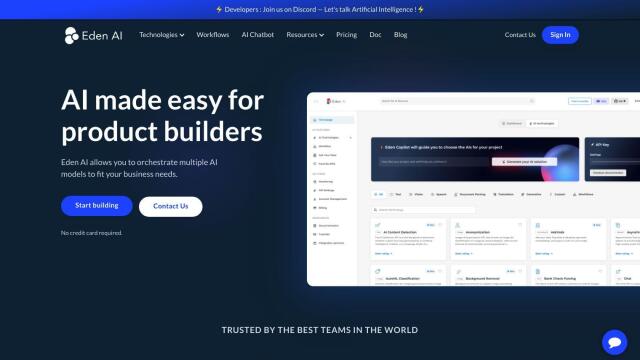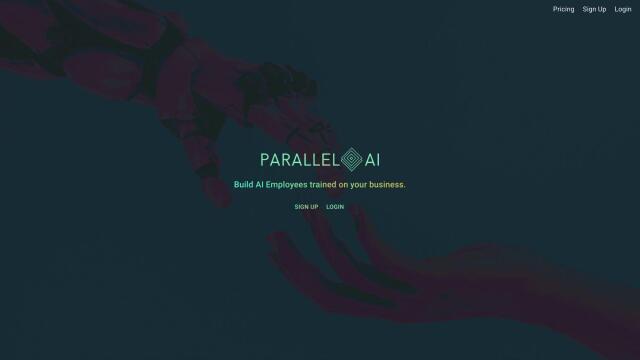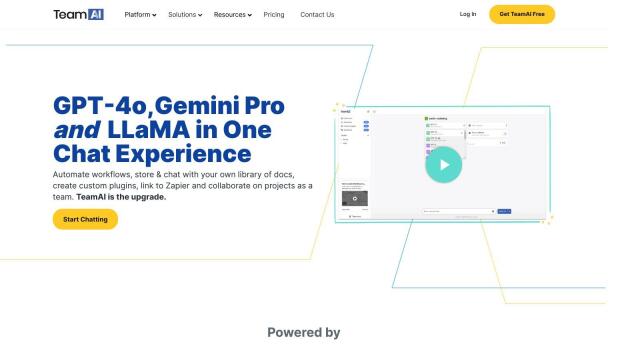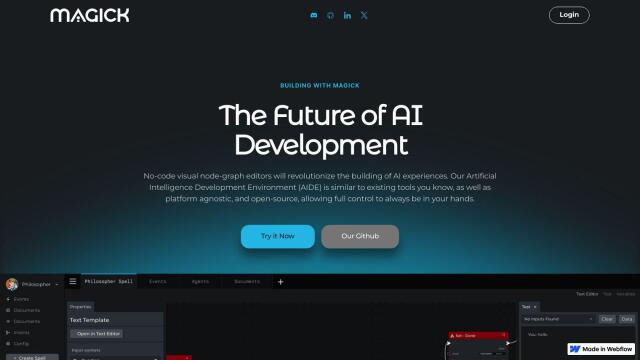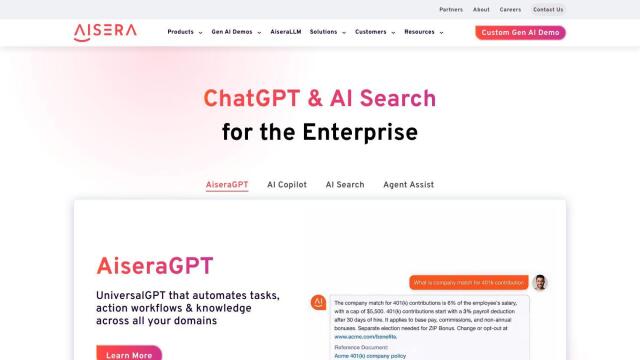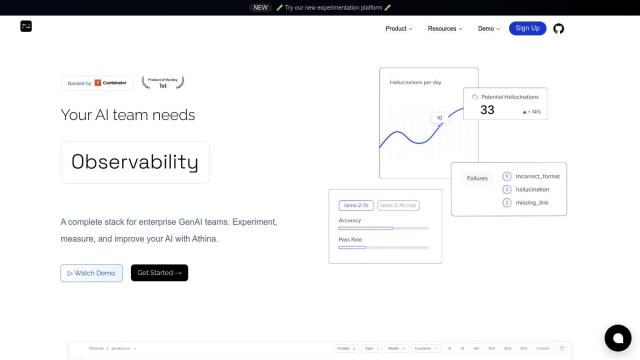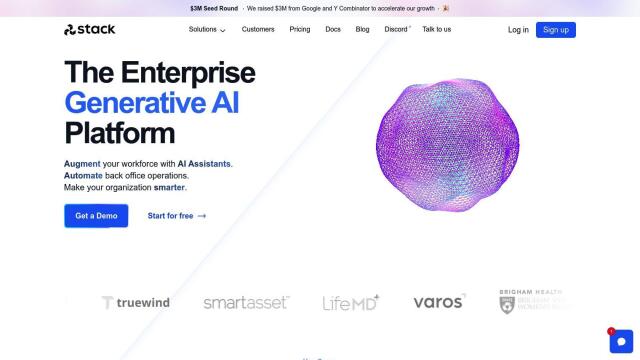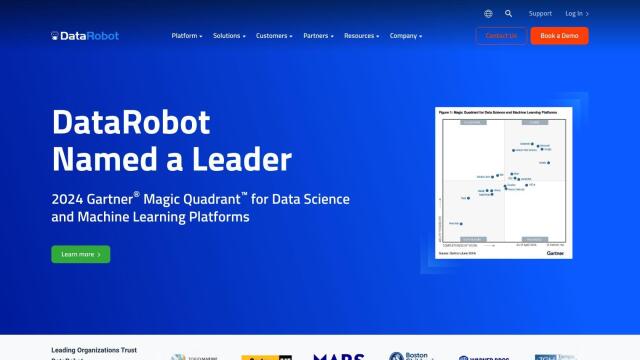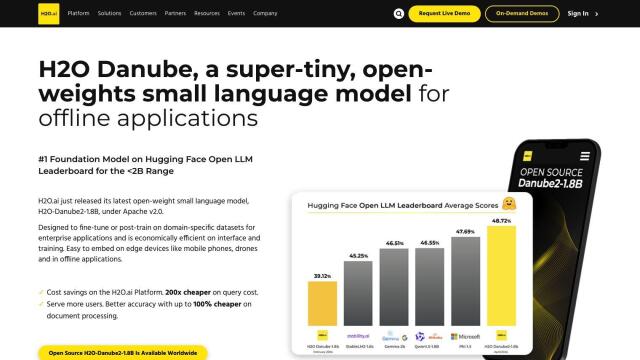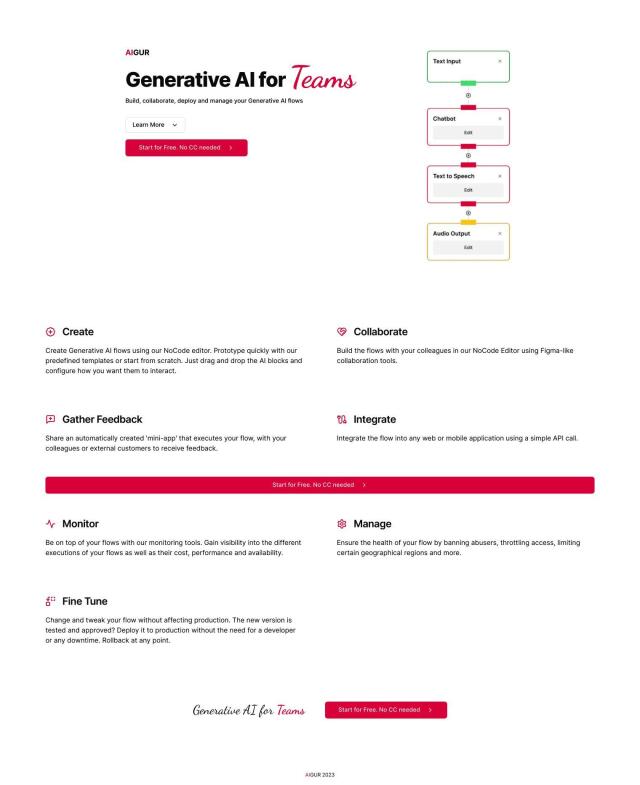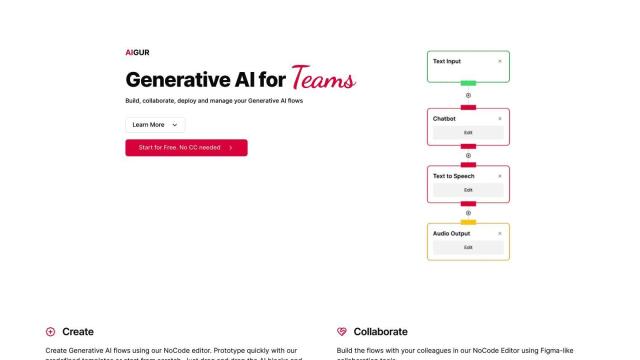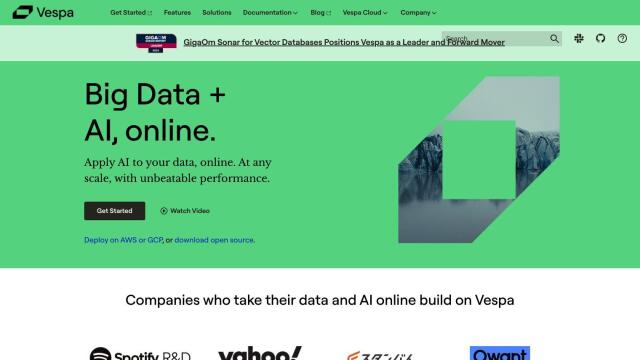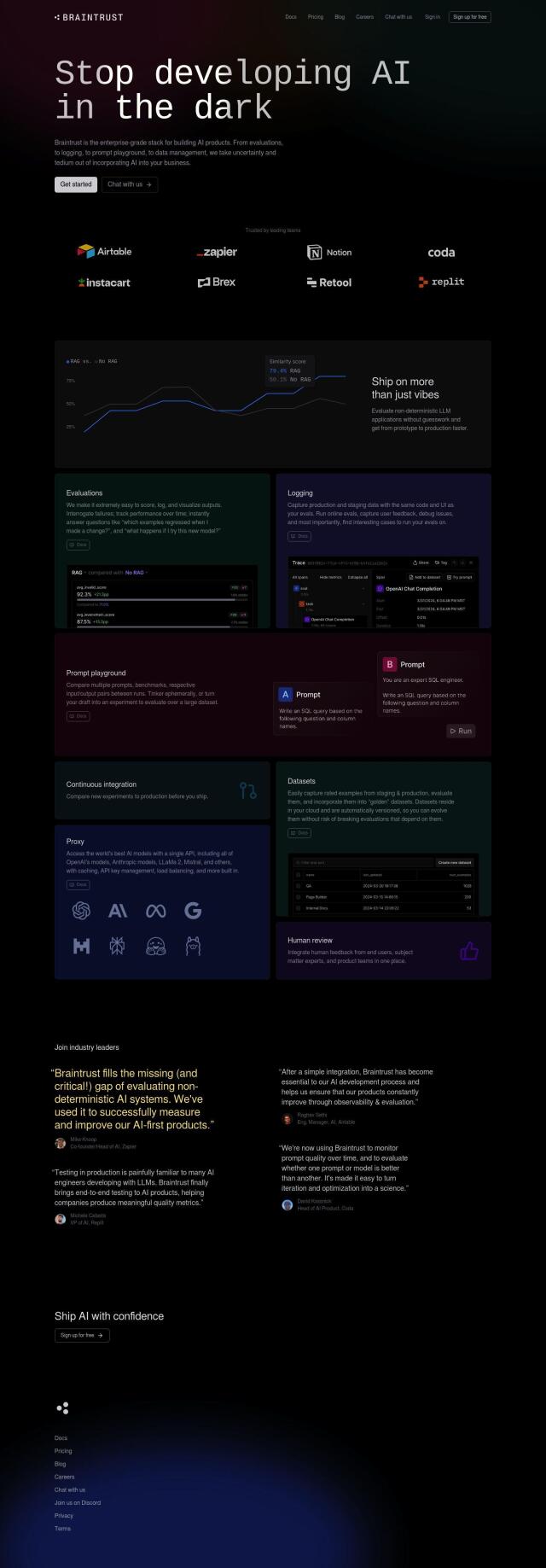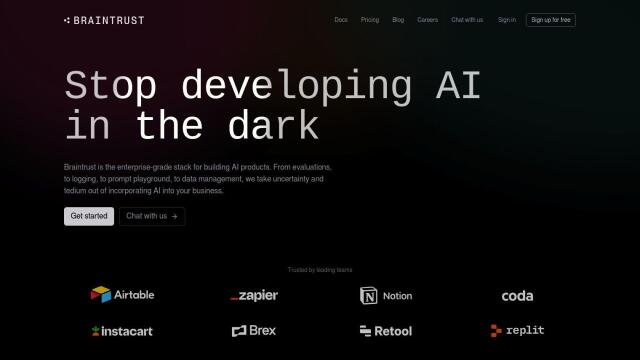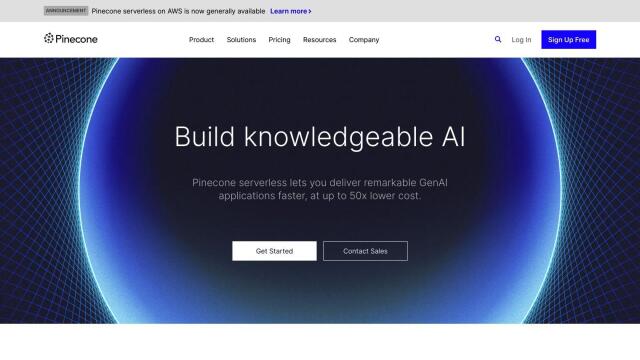

LastMile AI
If you're looking for a DataStax alternative, LastMile AI is another option. It's designed to let developers productize generative AI applications with confidence. It comes with features like Auto-Eval for automated hallucination detection, RAG Debugger for better performance, and Service Mesh for a single API gateway. It also supports a range of AI models for text, image and audio modalities, and it's got a notebook-like environment, Workbooks, for prototyping and app development.


Keywords AI
Another option is Keywords AI, a DevOps platform for AI applications based on large language models (LLMs). It's got a single API endpoint for multiple LLM models, can handle a high number of concurrent calls with no latency, and can be easily integrated with OpenAI APIs. The platform also includes a playground and prompt management for testing and optimizing models and prompts, which makes it a good option for AI startups that want to focus on products, not infrastructure.

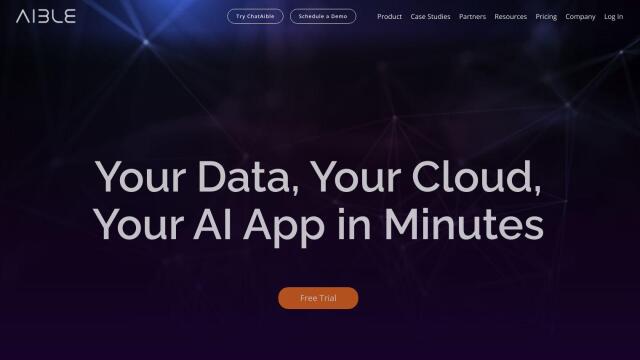
Aible
If you're looking for something more geared toward the enterprise, Aible is another option. It offers fast and secure generative AI applications that scale and are reliable. Features include fast time-to-delivery, hallucination monitoring and auto-improvement. Aible is integrated with major cloud providers to protect data privacy and security, so it's good for a variety of industries and functions, including sales, marketing and health care.


Abacus.AI
Last, Abacus.AI offers a full platform for building and running applied AI agents and systems at scale. It includes products for building end-to-end RAG systems, automating complex workflows and providing predictive and analytical capabilities. With features like high availability, governance and compliance, Abacus.AI is designed to make it easier to add AI to applications, which can help with customer service and business optimization.

